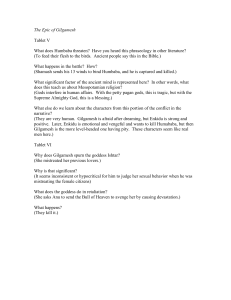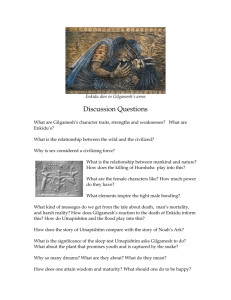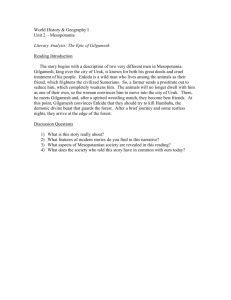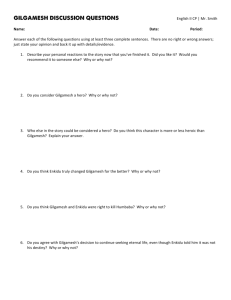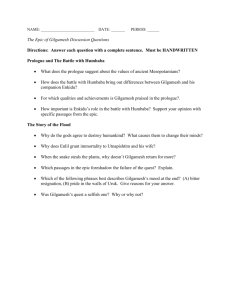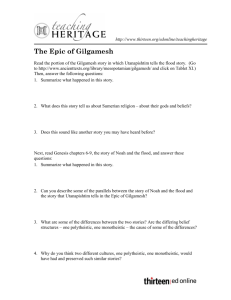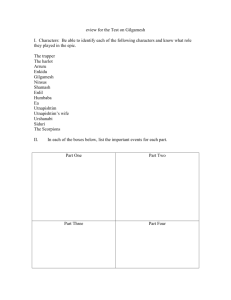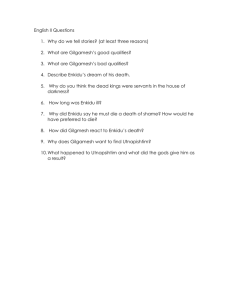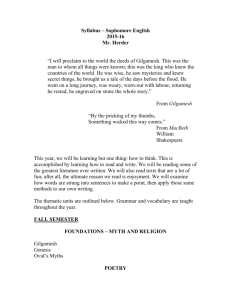The Epic of Gilgamesh
advertisement
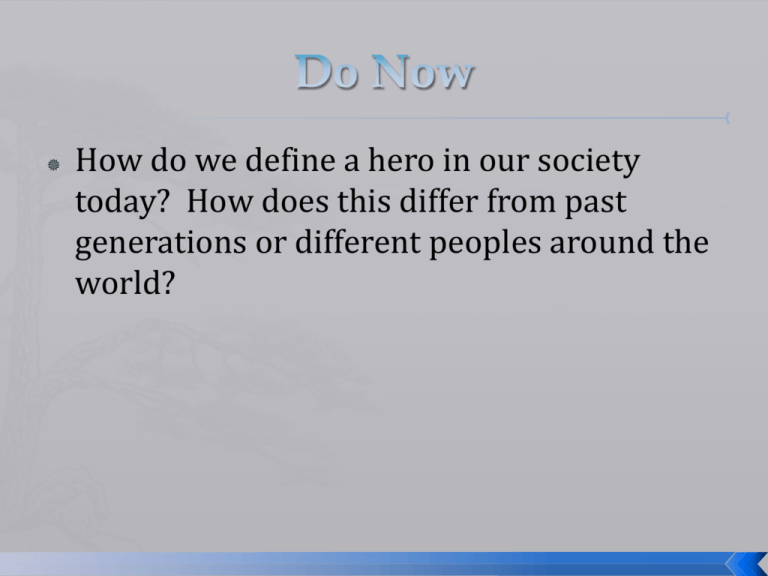
How do we define a hero in our society today? How does this differ from past generations or different peoples around the world? This long epic poem is about a Sumerian king who lived between 2700 and 2500 B.C. The themes are universal: how to become known and respected how to cope with the loss of a dear friend how to accept one’s own inevitable death Oral tradition of ancient times Most people could not read so stories and culture were passed down through the telling of tales. However, this story was recorded on clay tablets found in the mid-1880s. Story of an arrogant king Make sure to read all vocabulary and footnotes in the story. They include important information that will help with understanding the story. Also, this information may be on tests and quizzes. Archetype A basic plot, character, symbol or idea that recurs in the literature of many cultures One example is a hero’s quest A plot in which an extraordinary person goes on a difficult journey or mission The hero may search for a person, place, or object of value, the answer to a problem or puzzling question, or some kind of special knowledge The hero’s quest is a common theme in literature and one that will be a part of many of the literary works we will read this year. Complete classwork worksheet. Read The Epic of Gilgamesh Part 1 – The Prologue, The Battle with Humbaba, and The Death of Enkidu on Pages 14-20 of your literature textbook and complete the corresponding questions. Can a relationship that begins as a rivalry turn into friendship? Why or why not? Is Gilgamesh the kind of hero that you admire? Why or why not? Use examples from the story to support your statements. Before the battle, what does Enkidu tell Gilgamesh about Humbaba? In his response, what attitude does Gilgamesh display toward death? What do the repeated references to cedar trees and Humbaba’s offer of them in exchange for his life suggest about their value to this culture? What differences between Gilgamesh and Enkidu does the battle with Humbaba reveal? Complete classwork worksheet. Read The Epic of Gilgamesh Part 2 – The Story of the Flood and The Return on pages 21-28 of your literature textbook and complete the corresponding questions. How does Gilgamesh respond to the difficult obstacles he encounters? How do you respond when faced with a problem that seems to be more than you can handle? Do the gods and goddesses in the story behave in the way that you expected? Explain, using examples from the story to support your statements. How does Gilgamesh come to hear the story of the flood? Relative to the other events in the story, when does the flood happen? Why is Utnapishtim able to tell it? Why do the gods decide to destroy humanity? Why do they soon question the wisdom of their decision? What lessons might Gilgamesh draw from the gods’ experiences? After telling the story of the flood, what mysterious gift does Utnapishtim direct Gilgamesh to find? What happens to this gift? What lesson might Gilgamesh learn from this experience? Complete classwork worksheet. Bring three questions for Wednesday’s quiz review.
